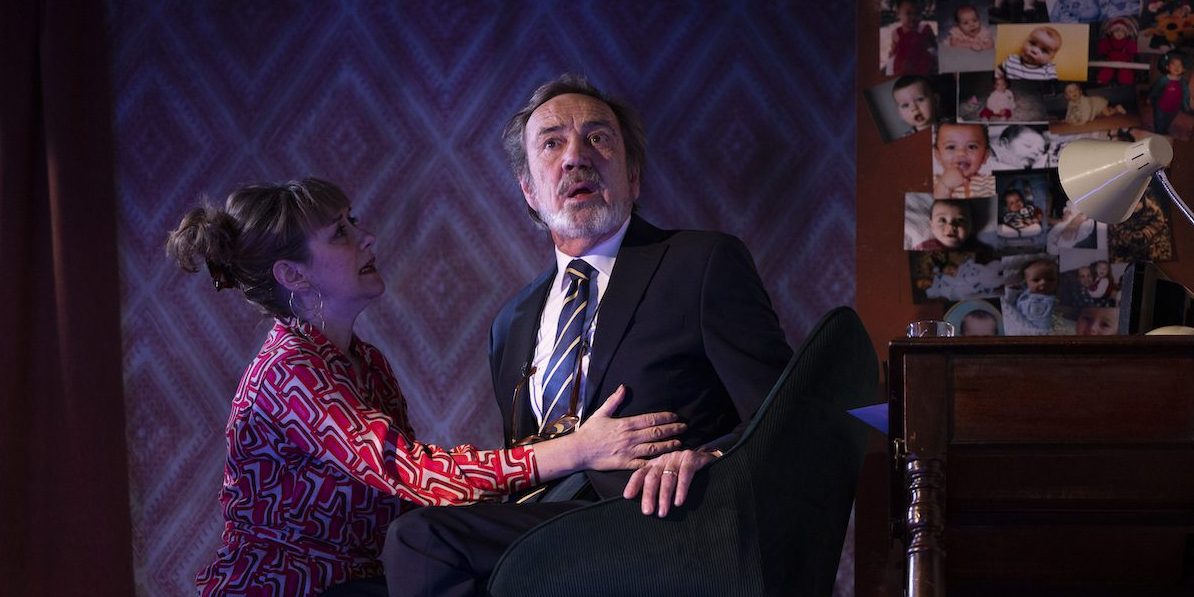The lights rise on a table set for an American family dinner which, when it takes place, serves to remind the Myers family of all the awful family dinners in the past. Inevitably, the meal ends in anger and tears. This reminds me of so many get-togethers of my own family where each member has their own grievance which needs to be aired. The battle for attention is palpable.
It is a truism that unhappy families are unhappy all in their own ways while happy families…anyone seen one of those? Alexis Zegerman’s new play rips through the veneer of peaceful co-existence to find the seething resentment of twins Anthony and Thomas, and step-sister Dorothea, in the home of prizewinning genetic engineer Professor Richard Myers and his much younger wife. Dad has Parkinson’s disease and Robert Lindsay movingly portrays the tremors, hesitations and frustrations of the condition while striving to retain dignity as head of the family.
While the day is supposed to be focused on the professor and his intended speech when he is to receive an award, his daughter is looking to the future: after his death who will get the money? Why should his wife, scarcely older than her, inherit their house? Can’t it be sold now and the money be divided?
The softening to this nasty position is that Dorothea, played with exquisite venom by Lisa Dillon, really needs money for her daughter who suffers from a rare auto-immune condition, the Fever Syndrome of the title. The child, Lily, is impressively portrayed by Nancy Allsop who alternates between sarky teen rejoinders and terrifying fits.
Dorothea is married to a Nate, totally inappropriate man who has the ambition but not the creativity to be a great scientist. He has a dodgy episode of plagiarism from a student in his backstory and a grating habit of pitching his unoriginal ideas at his ailing father-in-law at all the wrong times. On the other hand, as his portrayal by Bo Poraj convincingly shows, he is a devoted, caring father to his sick daughter, and in this respect the only unequivocally decent person in the family.
While Dorothea looks to the future, her brother Anthony (Sam Marks) cannot escape from the past and his humiliating childhood in a house where he grew up gay and thus despised by his father. The adored younger brother, Thomas, played by Alex Waldman with considerable panache, is a hopeless fantasist who has invested the family’s wealth in bitcoin. He also has a very questionably romantic relationship with his step-mother.
A pacey production is brought to life with a set which allows a series of vignettes of family life to be played out in the bedrooms, all open to view, above the living room. Thus we see Anthony’s boyfriend propose to him and be rejected, Dorothea and Nate bickering and their daughter hear their conversation when her mother begs for an extension of IVF treatment so she pursue her dream of having a ‘real’ child.
There is no lessening of stylish dialogue or pace in this family drama unless it is at the end where a recognition of human frailty brings the quarrelling family together. In my experience, a truce is more likely, a silence concealing seething resentment.

